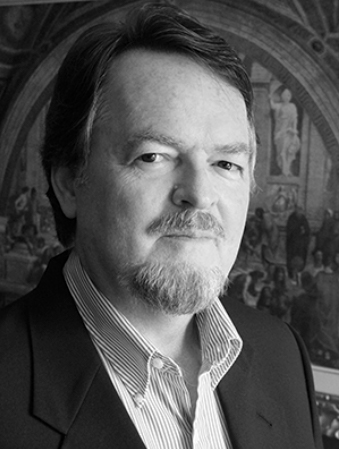The Providence of God
by | Posted February 11th at 5:48am
When the scriptural guidelines are understood, it becomes clear that all atomic movement in the universe and among his creation only occurs with Christ’s oversight and allowance. This makes sense since he is the co-creator of this world. (Col 1:15-18)
There seems to be nothing in Scripture that would indicate that some things are outside God’s providential control, or that these ways of God’s acting are unusual or unrepresentative of the ways in which he acts generally. Moreover, many of the verses that speak of God’s providence are very general: Christ “continually carries along all things by his word of power” (Heb. 1:3), and “in him all things hold together” (Col. 1:17). He “accomplishes all things according to the counsel of his will” (Eph. 1:11). Such Scripture passages have in view more than exceptional examples of an unusual intervention by God in the affairs of human beings; they describe the way God always works in the world. 1
Notably, two historic, well-studied church leaders, John Calvin and John Wesley, agree on the importance of understanding the doctrine of Providence for our Christian encouragement, albeit their differences of view.
Ignorance of providence is the ultimate of all miseries; the highest blessedness lies in this knowledge. – John Calvin
Among the foremost classic Christian doctrines, “there is scarce any that is so little regarded, and perhaps so little understood” as providence. – John Wesley
Here, we will begin with a the following excerpt from Wilhelm Braekel, Puritan Theologian. The Christian’s Reasonable Service. Edited by Dr Joel Beeke. 2
Consider the providence of God concerning all His creatures…that is, the immediate provision for, and dispensation of all things. This is to be observed in Genesis 22:8, “God will provide Himself a lamb for a burnt offering.” Providence is also referred to as ordinance (Psa. 119:91), God’s way (Psa. 77:13), God’s hand (Acts 4:28, 17:28), God’s upholding (Heb. 1:3), God’s working (Eph. 1:11), God’s government (Ps. 93:1), and God’s care (Job 12:10, 1 Pet. 5:7, Acts 17:28).
The Heidelberg Catechism clearly and devoutly describes providence as follows: The almighty and everywhere present power of God; whereby, as it were by His hand, He upholds and governs heaven, earth, and all creatures; so that herbs and grass, rain and drought, fruitful and barren years, meat and drink, health and sickness, riches and poverty, yea, and all things come, not by chance, but by His fatherly hand; that we may be patient in adversity; thankful in prosperity; and that in all things, which may hereafter befall us, we place our firm trust in our faithful God and Father, that nothing shall separate us from His love; since all creatures are so in His hand, that without His will they cannot so much as move.
Providence is a divine power. This is not merely due to providence being executed by the omnipotent One, but particularly in reference to the extrinsic execution of this power towards His creatures. It is therefore stated with emphasis, “And Jesus, immediately knowing in Himself that virtue had gone out of Him …” (Mark 5:30). Providence is an omnipotent power. When perceiving the magnitude of the work of creation; the innumerable number of creatures; the unfathomable diversity of their natures and appearance; the existence and continuation of each created object according to its own essential nature; the movement of animate, rational, and inanimate creatures; the precise order of all things both as to movement and the manner in which one object initiates the motion and progression of another object—one must lose himself in amazement regarding the infinite power and wisdom of God by which all things are maintained and governed. By this power God irresistibly executes whatsoever He wills, and no one can prevent Him from doing so. “For the LORD of hosts hath purposed, and who shall disannul it? and His hand is stretched out, and who shall turn it back?” (Isa. 14:27); “My counsel shall stand, and I will do all My pleasure” (Isa. 46:10).
Providence is an omnipresent power of God. This is not merely true in reference to the omnipresent Being of God, but particularly in reference to His energizing power in all His creatures. This power of God does not merely manifest itself generally in all things. Neither does it merely affect the initial secondary causes, which in turn further initiate motion and activity in all other secondary causes. This power of God penetrates the existence of every creature, and thus, in an immediate sense and via all secondary causes, affects the ultimate outcome of all things. The power of God is therefore in all things and manifests itself in all that exists and moves. If we had clear perception, we would observe this power in everything.
1 Wayne A. Grudem, Systematic Theology: An Introduction to Biblical Doctrine (Leicester, England; Grand Rapids, MI: Inter-Varsity Press; Zondervan Pub. House, 2004), 342.
2 Excerpt: Wilhelm Braekel, Puritan Theologian. The Christian’s Reasonable Service. Edited by Dr Joel Beeke.

Article posted by Glen R. Jackman, founder of GraceProclaimed.org
Glen has optimized his eldership role to teach the full scope of the New Covenant of Jesus Christ without
boundaries.
You can read his testimony.